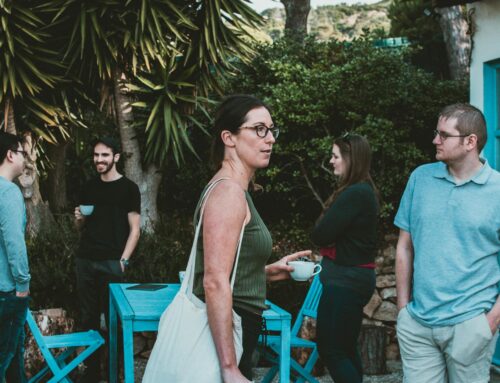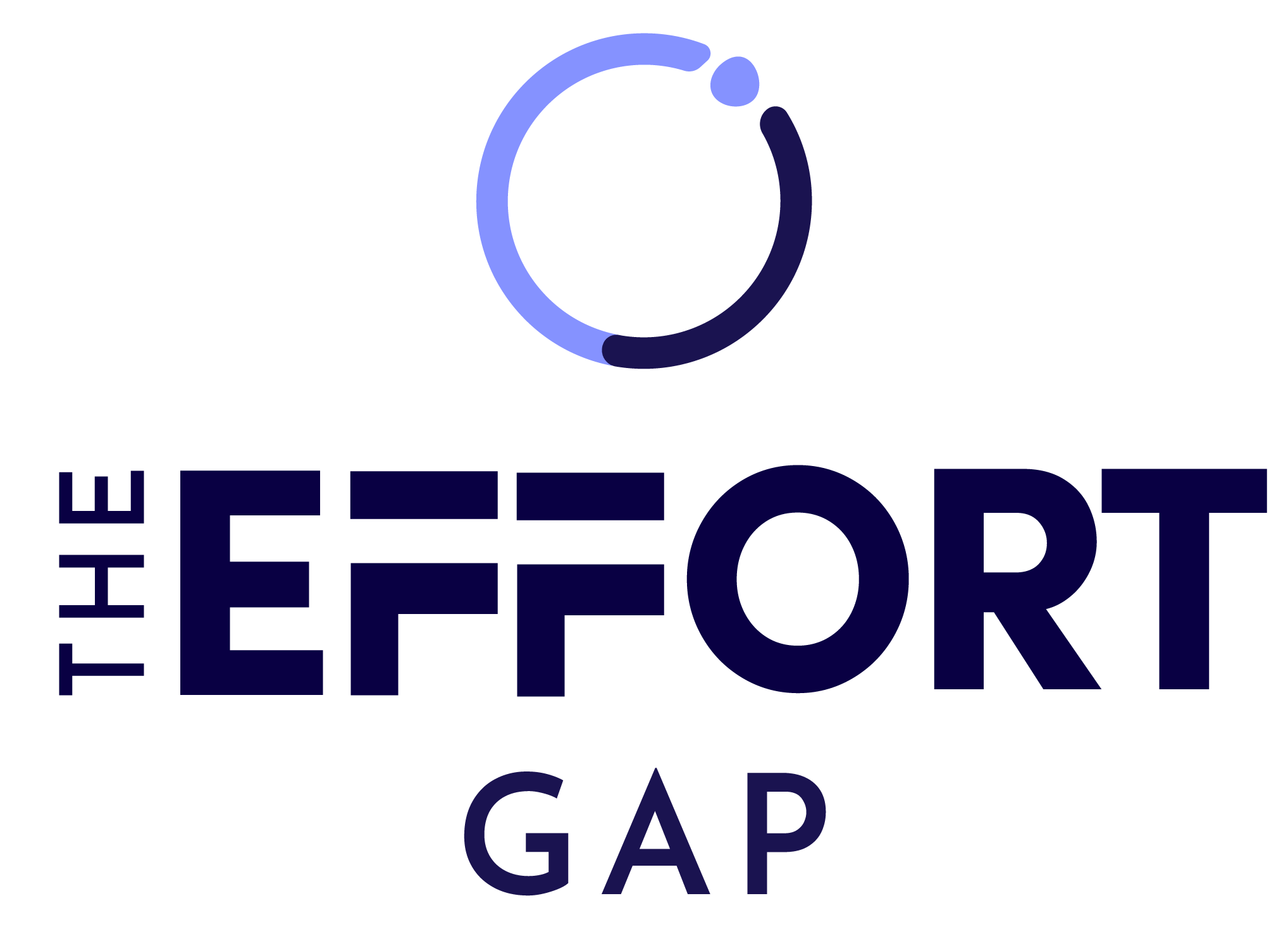After all, if we don’t serve as the CEO of our own lives, who will?
Self leadership has yielded to the expectation of being served ready-made solutions.
During my career in advertising, I witnessed the industry shift from informing people about a product’s quality to emotionally binding them to it. “If you don’t buy this, you’re not thriving.” Products can’t just be presented as solutions to practical needs; now they must promise shortcuts to a better life.
When I left advertising, I saw a similar issue in public education. To learn is to repeat answers provided by authority figures. The pattern starts early: rely on someone else to tell you what to do, whether it’s a product to buy or an answer to recite.
Both systems—marketing and education–condition us to depend on directives. To succeed is to follow instructions and gain approval. This approach spilled out of classrooms and into everyday life. We wait for permission. We question our every move. We hold off on taking action until someone claiming they have the right answer relieves us from the responsibility of thinking things through. Outsourcing our decision-making diminishes our self esteem, which leads to perfectionism, self-doubt, and mental fog.
If not from parents who eventually stop insisting “let me do it for you,” if not from an exact right answer ingrained into memory, and if not from a prompt response from search results… How do we ponder? How do we discover? How do we know?
“It takes discipline, now, not to look things up immediately, but to sit and wonder.”
-Austin Kleon
Why We Avoid Effort and Diminish Our Self Leadership
Our brains prioritize safety and familiarity. Anything that doesn’t feel perfectly safe and familiar leads you to overthinking, perfectionism, and self-doubt. Why? Your brain traps you in feelings of helplessness and overwhelm to freeze action. You’re enticed to remain still, settling into comfort, ease, and security. This is where you surrender your self leadership.
Your brain is doing exactly what it was designed to do–protect you. The challenge isn’t to fight your brain, but to work with it. Notice when it’s over-prioritizing safety, and to choose effort anyway.
“If there’s a way to avoid exerting effort, we almost always do.”
–Dr. Matthew Lieberman
Closing the Effort Gap and Improving Self Leadership
Humans are beautifully complex, yet reassuringly simple. Our contentment stems from skills derived from the quadrants of growth and intelligence. We explore each of these in-depth throughout The Effort Gap.
-
- Self-Awareness (Understand Yourself)
- Social Awareness (Understand Others)
- Self-Management (Lead Yourself)
- Relationship Management (Manage Relationships)
You will not find quick fixes here, or anywhere else, for how to improve your life. Instead, you will learn to develop comfort with discomfort.
Growth requires studying your current perspective and habits of mind. The journey requires diligent self leadership. What’s one area of your life where you wish someone would just show up and solve for you?
“If anyone is magically going to appear and suddenly make your life better, just know that person is always going to be you.”
unknown
“There’s really not a difficult thing unless you decide it’s a difficult thing. Otherwise, it’s just the next thing you’re figuring out.”
unknown
Self leadership is living life without relying on external validation or predefined answers. Yet, in a world noisy with brands and influencers claiming they have the answer to our problems, self leadership dissolves. We are taught to look outward instead of trusting our ability to explore challenges and test solutions on our own.
To strengthen self leadership, we first have to understand what’s watering it down. Recognizing patterns is the first step to closing the effort gap and self-leading a fulfilling life.
After all, if we don’t serve as the CEO of our own lives, who will?
Self leadership has yielded to the expectation of being served ready-made solutions.
During my career in advertising, I witnessed the industry shift from informing people about a product’s quality to emotionally binding them to it. “If you don’t buy this, you’re not thriving.” Products can’t just be presented as solutions to practical needs; now they must promise shortcuts to a better life.
When I left advertising, I saw a similar issue in public education. To learn is to repeat answers provided by authority figures. The pattern starts early: rely on someone else to tell you what to do, whether it’s a product to buy or an answer to recite.
Both systems—marketing and education–condition us to depend on directives. To succeed is to follow instructions and gain approval. This approach spilled out of classrooms and into everyday life. We wait for permission. We question our every move. We hold off on taking action until someone claiming they have the right answer relieves us from the responsibility of thinking things through. Outsourcing our decision-making diminishes our self esteem, which leads to perfectionism, self-doubt, and mental fog.
If not from parents who eventually stop insisting “let me do it for you,” if not from an exact right answer ingrained into memory, and if not from a prompt response from search results… How do we ponder? How do we discover? How do we know?
“It takes discipline, now, not to look things up immediately, but to sit and wonder.”
-Austin Kleon
Why We Avoid Effort and Diminish Our Self Leadership
Our brains prioritize safety and familiarity. Anything that doesn’t feel perfectly safe and familiar leads you to overthinking, perfectionism, and self-doubt. Why? Your brain traps you in feelings of helplessness and overwhelm to freeze action. You’re enticed to remain still, settling into comfort, ease, and security. This is where you surrender your self leadership.
Your brain is doing exactly what it was designed to do–protect you. The challenge isn’t to fight your brain, but to work with it. Notice when it’s over-prioritizing safety, and to choose effort anyway.
“If there’s a way to avoid exerting effort, we almost always do.”
–Dr. Matthew Lieberman
Closing the Effort Gap and Improving Self Leadership
Humans are beautifully complex, yet reassuringly simple. Our contentment stems from skills derived from the quadrants of growth and intelligence. We explore each of these in-depth throughout The Effort Gap.
-
- Self-Awareness (Understand Yourself)
- Social Awareness (Understand Others)
- Self-Management (Lead Yourself)
- Relationship Management (Manage Relationships)
You will not find quick fixes here, or anywhere else, for how to improve your life. Instead, you will learn to develop comfort with discomfort.
Growth requires studying your current perspective and habits of mind. The journey requires diligent self leadership. What’s one area of your life where you wish someone would just show up and solve for you?
“If anyone is magically going to appear and suddenly make your life better, just know that person is always going to be you.”
unknown
“There’s really not a difficult thing unless you decide it’s a difficult thing. Otherwise, it’s just the next thing you’re figuring out.”
unknown






